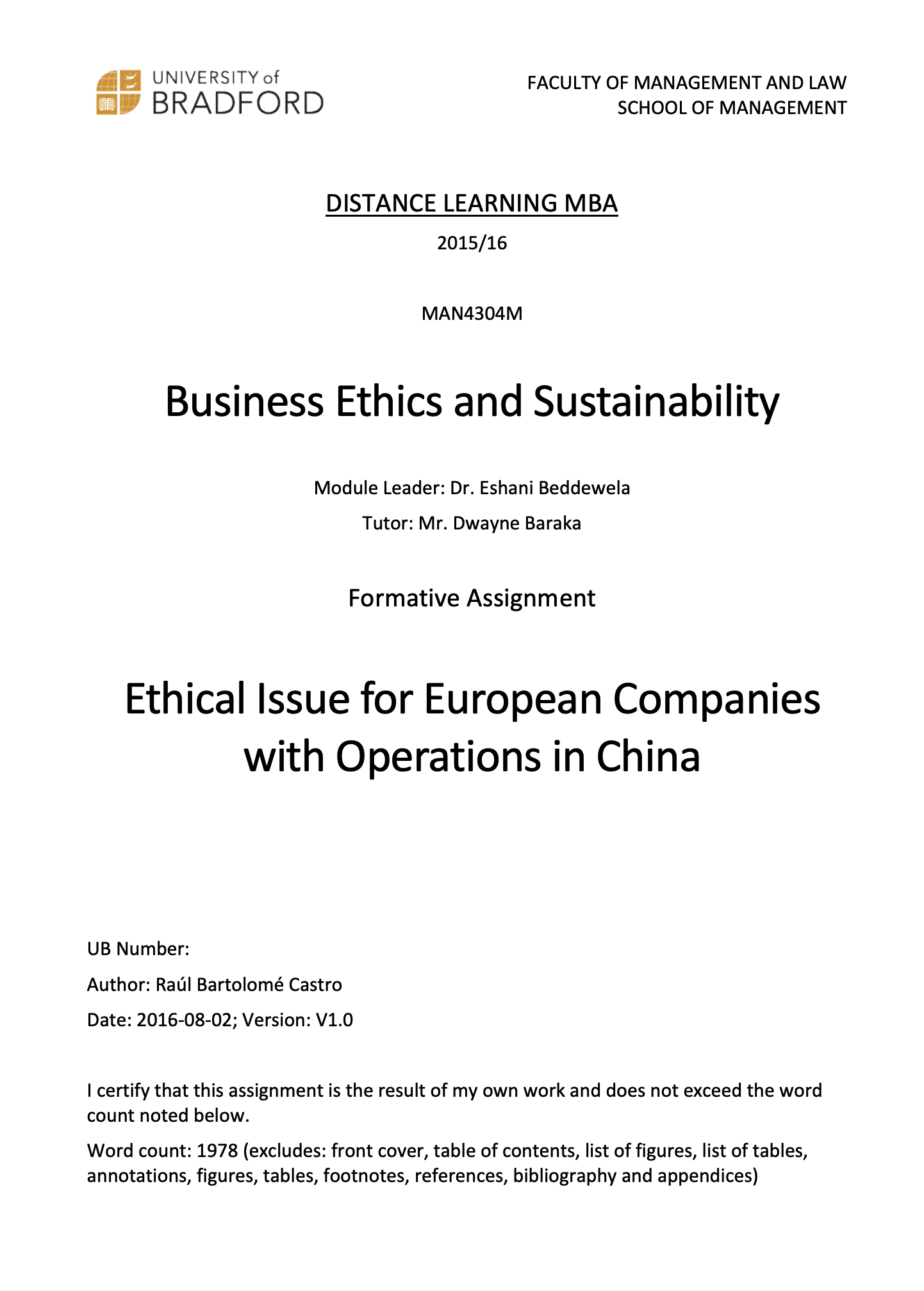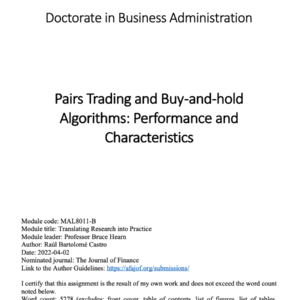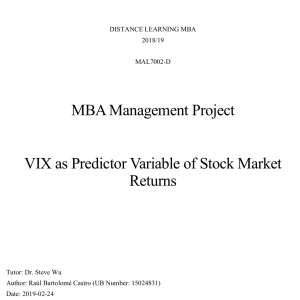The company has projects with Chinese clients (consumers) that require a fluent collaboration and communication between both companies. The common practice taken by PMs in Chinese project in order to promote collaboration and communication are:
- The team members, included the PMs, recurrently travel to China for short periods of time of one or two weeks.
- Specific team members, so called resident engineers (REs), move to China for long time, at least one year of more.
The issue arises because the environmental conditions in China are worse than in Europe, therefore team members are exposed to a hazardous environment, specifically degradation of air quality, water and food safety.
This scenario presents an ethical dilemma; the ESP company wants to pursuit operations with Chinese companies because the economical turnover and the long lasting sustainability that might derive from the exponential China’s gross domestic product (GDP) growth; however, to effectively support the operations, the company decides to bring the project’s team members to China for short or long term assignments, that presents a serious threat to employees’ health.
Literature provides many arguments that support the statement of the ethical dilemma. Please, check appendices 8.2, 8.3 and 8.4 for details.
The organisation engages a compensation schema proportional to the potential harm, or in other word, proportional to the exposure to Chinese environment[1]. Those employees that spend more time in China (e.g. REs) receive higher incremental compensation than those that spend less time (rest of team members). Literature calls this compensation wage differential (CWD), hazard-pay premium or danger money. CWD is the increment in wages that employees in hazardous environments receive, as compared to other workers (Moore & Viscusi, 1992; Shrader-Frechette 2002). Appendix 8.6. for development.
The download includes the complete assignment in pdf.
€1,99




Reviews
There are no reviews yet.